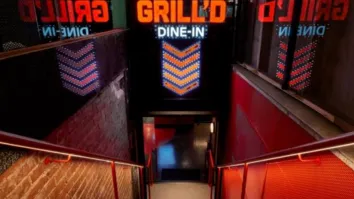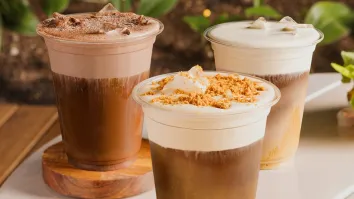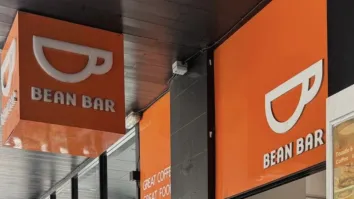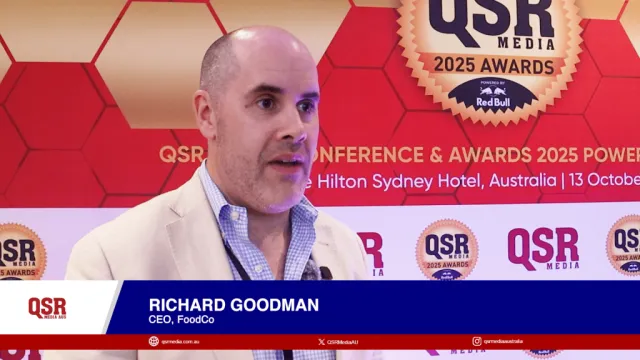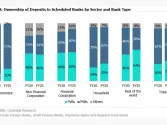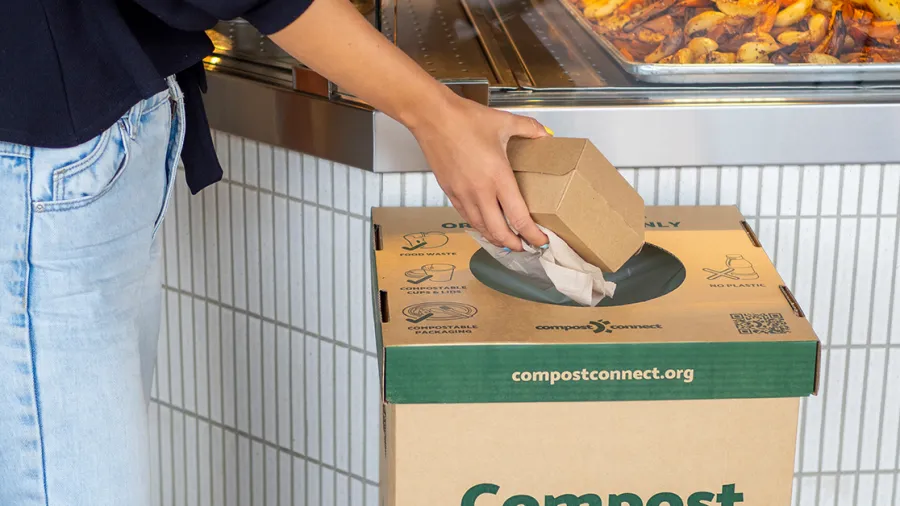
Why Composting Matters In The Foodservice Industry
Sustainability is a topic that's been on the minds of QSR businesses for a long time. From recycling to using local produce, it's clear that fast food chains are looking for ways to reduce their carbon footprint and make sure they're doing everything they can to support the environment.
Composting is one of the easiest ways for QSRs to do its part for the environment. Composting reduces waste and helps businesses stay green, both of which are important for the customers and for the future of our planet.
In this post, we'll discuss why QSRs should consider composting as an option for the business, how it benefits both the business and the planet (and how it's different from recycling), plus some of the best ways to get started!
The benefits of composting to QSR businesses
Foodservice businesses are on the front line of sustainability efforts in our society. Australia wastes more than 7.3 million tonnes—equal to over 13,000 Olympic-sized swimming pools—of food every year and it costs us $36.6 billion annually.
While many restaurants have made strides in reducing their impact by recycling and using environmentally-friendly products, recycling alone is not enough to solve the problem.
Composting is a great way to reduce the amount of food waste that ends up in landfills and incinerators. It's a simple process: organic material like food scraps is placed into bins or buckets where it decomposes into compost over time. The resulting compost can then be used as fertiliser in gardens or as an alternative to regular soil.
There are a handful of key reasons why composting is worth considering for a restaurant or foodservice operation.
Composting food scraps instead of sending them to a landfill can help foodservice businesses make an impact on the environment by reducing landfill waste, which helps reduce greenhouse gas emissions. Compost also has many other benefits such as reducing water pollution, improving soil fertility, and providing habitat for wildlife.
Composting isn't just good for the environment—it's also good for business. It can help save money on trash disposal fees, reduce stress on wastewater treatment plants, and cut down on labour costs associated with hauling away organic waste.
Moreover, composted food scraps don't attract pests unlike the usual food scraps that are readily available and easy for those pests to consume. When those scraps are turned into compost, there's less odour and less attention from pests looking for a meal!
Finally, for quick-service restaurants, being environmentally friendly has become even more important than it used to be—especially because new hires and customers expect their workplace or favourite eatery to have green policies. By composting, a QSR business can show its customers that sustainable practices are important to it—and this can encourage them to keep coming back for repeat purchase.
Recycling vs Composting
When we talk about recycling and composting in the QSR industry, it's easy to get confused. They're both important practices that reduce the amount of waste that gets thrown away. But they're not quite the same thing!
Recycling means taking something that's been used and making it into something new—like turning aluminium cans back into fresh aluminium sheets for making cans again! Recycling involves taking things apart, cleaning them up, and putting them together in a new way.
Composting is different: it's where organic matter (like vegetable peels or eggshells) breaks down into a valuable product over time—a nutrient-rich soil—with the help of fungi, bacteria and other organisms.
Composting relies on four main factors: materials, temperature, moisture and air circulation. The two most common methods of composting are aerobic and anaerobic. Aerobic composting happens when oxygen is present, while anaerobic composting happens when there isn't enough oxygen in the air to support life.
Composting as the best choice for QSRs
Reusing is great, but it isn't enough. Also, different councils have different rules about what can be recycled, so QSRs need to check with their local council before throwing anything in the bin. This is why only through composting can restaurants ensure that their waste is being used in a way that will help the planet in the long term.
Another problem with recycling is that it doesn’t reduce the overall waste production—it just shifts it around. For example, suppose a business recycles aluminium cans. The cans were taken out of the waste stream, but now they need to be made into new cans again which needs more energy and resources. Composting doesn’t have this problem—because it uses decomposition and microorganisms to break down organic matter, it creates less waste overall.
Additionally, composting is a viable option for disposing of food service packaging and its accompanying waste stream. End users like customers can easily dispose of compostable packaging and food waste in one bin, the green one—for commercial composting.
Choose Compostable Packaging Solutions
Compostable packaging is the best choice for a QSR business because it allows QSRs to reduce their carbon footprint by using products that break down naturally in municipal composting facilities, helping them become part of a nutrient-rich soil.
BioPak’s compostable packaging has been certified as commercially and home-compostable. These packaging solutions are made from renewable resources with a far smaller Co2 footprint than conventional packaging.
BioPak's Compost Connect is another way QSRs can do its part to reduce the negative impact on the environment in line with a “circular economy”—which focuses on reusing resources instead of wasting them or sending them through traditional disposal processes. It’s a not-for-profit composting initiative that helps connect foodservice businesses to composting services, diverting waste from landfill and transforming them into organic fertiliser.
Making Positive Impact with BioPak
Zambrero UK, a Mexican-inspired food chain that serves up burrito bowls and tacos to hungry patrons, uses BioPak's compostable containers, lids, and wooden cutlery. BioPak’s custom-made sugarcane containers are designed to replace the single-use plastic bowls that traditionally have been used by Mexican fast food restaurants.
Aside from its eco-friendly packaging initiative, Zambrero UK also partners with Zap Waste through Compost Connect to compost food packaging and food scraps.The brand's Kentish Town store in the UK, which opened in June 2021, was able to divert 1,000+ kilograms of compostable BioPak packaging from landfill since it started operations.
Zambrero UK’s Kentish Town location is expected to divert about 3,000 kilograms of organic waste from landfill over the next year. The company will continue working with Zap Waste to compost across its two London-based stores.
Key Takeaway
Compostable packaging for restaurants is a great way to offer the customers a more environmentally-friendly option. It's also a great way to make sure that both food and packaging wastes are properly handled. To learn more about how BioPak can help your QSR business be a leader when it comes to sustainable food service, contact BioPak today!


